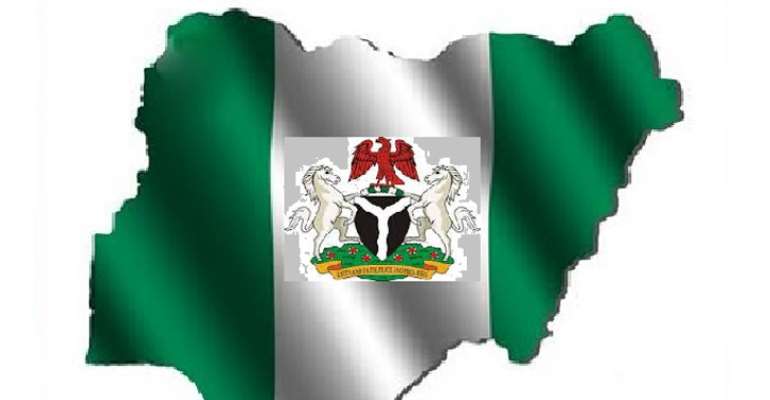Restructuring: Making Nigeria work

It goes without saying that mutual suspicion runs deep amongst the ethnic groups, with significant exchanges of hate poisoned arrows flying routinely across the divide. In effect, instigating enormous tear on the fabric of our unity. Thus, making attempts at stitching a mammoth task.
Undoubtedly, spats between members of a family cannot be foreclosed but flag of caution needs to be waved when lines are about to be crossed. Our situation has grown so volatile so much so that parallels are drawn with the harbingersof the civil war.
We have never had a nation. We simply go through the motions of allegiance and patriotism. We dwell so much on pettiness and clannishness while on the table and failed to lock our hands together in our walk. Religion and ethnicity are the lens we view ourselves and happenings in the country.
The country is on life support with extreme prescription like – let us put the giant out of its miseries. Afterall, something must go, for something new to emerge! The question is, do we have to pull everything down with fusillade of bullets and mortar fire so that we rebuild with innocent blood and skulls? Clearly, setting alight the country with the fire of our primordial sentiments will only leave us with no country to call home.
Too diverse to be ONE constantly fills our ears and that has subliminally influenced us. The truth is, good leadership and statesmanship have always been at a premium in the country. That’s the misfortune we have suffered over the years. The good leader weaves us together; on his back bridges are built and in his palms development and prosperity grows. Over the years the instruments of unity have practically been decimated and social justice torn into ribbons. Expectedly, engendering the pervasive undercurrent of alienation.
The production line of leaders is faulty. And, you need a formidable ‘war chest’ and an army of conscienceless persons with hands smeared by blood and mind befuddled with drugs to elbow your way into elective positions.
When power is secured, the ‘winners’ retreat into the echo chamber built by obsequious courtiers where dissenting voices hardly pierce through. Altars are erected in glory of mediocrity. Neutrality in administering the country in the face of our plurality are glossed over. The delivery of the goods is made subservient to personal aggrandizement and ordinary citizens on whose back victory is recorded are left in the lurch.
It beggars belief that in the 21st century, the weight of the provision of basic social services are borne by the citizens which really means that a social contract hardly exist. How do you trust a system that operates with no sense of responsibility? The answer you get from the steady stream of citizens making their way out of the country on why they are emigrating is basically to secure a better future under a system that works.
The harvest of deaths on account of insecurity are showing no sign of receding. Citizens are unmitigatedly inured of the avalanche of insensate killings as they routinely come in quick succession providing no chance to properly grief. Seemingly, populists or outlaws whatever label you may put on them are gradually emerging from the cracks to feed on the frustrations and disillusionment of hapless citizens.
For a fact, the country has been driven into a cul de sac thus the necessity to engage the reverse gear onto the freeway way of restructuring- a change in the socioeconomic and political structure. I couldn’t agree more with the erudite columnist Idowu Akinlotan that “the stability of a country and progress it makes depend on its structure and grundnorm.” The conventional wisdom is that our stymied development and the toxic political squabbles are upshot of the present system which advertently was designed to have a federal body with a unitary heart and soul for a rigid control by the military.
Since, the “Unification Decree” No.34 of 1966 by Gen. Aguiyi Ironsi which put paid to the federal system of government our constitutions have continue to reinforce the central government with exclusive powers which has effectively fostered the fierce political rivalry amongst the elite and disparate groups for affluence and influence. Suffice to say, the fixation with the current political arrangement has power and the perks as incentive.
Nigeria was already at the fast lane of development with regional governments exercising power and control over the abundant resources within their domain. Legacies of the halcyon periods of true federalism are still visible. Nigeria would have been in the same plane of development with many developed countries of the world were the steam of the huge stride of development maintained.
At any rate, consensus is reachable in moulding a structure that will confer powers to the constituent units in engendering “self reliance, self development for sustainable prosperity” that will help pull the plug on the unwritten rotational arrangement to help spare our energies for healthy rivalries and competition instead of pernicious rivalry that has pitted the country against itself.
However, not few arguments abound on the viability of the current system through the strengthening of institutions. Clearly, the point remains that building on faulty foundation verges on insanity. Truth is, competition will ensure each constituent unit entrench good governance that will spur stronger and better institutions. For the umpteenth time, restructuring the system is the first big step toward doing things differently in weaving the different parts of the country together in peace for much sought after development.
ABACHI UNGBO
[email protected]
